| Thomas Barfield (Anthropology), Shadow Empires: An Alternative Imperial History, Princeton University Press, 2023. |
| Brooke Blower (History), Americans in a World at War: Intimate Histories from the Crash of Pan Am’s Yankee Clipper, Oxford University Press, 2023. |
| Arianne Chernock (History), The Right to Rule and the Rights of Women: Queen Victoria and the Women’s Movement, Cambridge University Press, 2023. |
| Robert W. Hefner (Anthropology), Islam and Citizenship in Indonesia Democracy and the Quest for an Inclusive Public Ethics, Routledge, 2024. |
| James Johnson (History), A Cultural History of Ideas in the Age of Empire, Vol. 5, Bloomsbury Press, 2023. |
| Cathie Jo Martin (Political Science), Education for All? Literature, Culture and Education Development in Britain and Denmark, Cambridge University Press, 2023. |
| Ronald Richardson (History), Being-in-America: White Supremacy and the American Self, Peter Lang, 2024. |
| John Thornton (History), Afonso I Mvemba a Nzinga, King of Kongo: His Life and Correspondence, Hackett Publishing, 2o23 |
| Ana Villarreal (Sociology), The Two Faces of Fear: Violence and Inequality in the Mexican Metropolis, Oxford University Press, 2024. |
| Merry White (Anthropology), Ways of Eating: Exploring Food through History and Culture, Princeton University Press, 2023. |
 Saida Grundy (African American Studies, Sociology) Respectable ( August 2022) Grundy gathers the experiences of former students and others connected to Morehouse College to illustrate the narrow, conservative vision of masculinity molded at a competitive Black institution. Saida Grundy (African American Studies, Sociology) Respectable ( August 2022) Grundy gathers the experiences of former students and others connected to Morehouse College to illustrate the narrow, conservative vision of masculinity molded at a competitive Black institution. |
 Jonathan J.B. Mijs (Sociology) Merit and Ressentiment: How to Tackle the Tyranny of Merit (Theory and Research in Education, July 2022) Mijs discusses Michael Sandel’s The Tyranny of Meritocracy, pushing back on the concept that people are disillusioned with meritocracy but rather than people are disillusioned due to the “broken promise of liberalism and democracy.” Mijs also discusses some of the practical limitations of Sandel’s suggestions regarding elite university admissions. Jonathan J.B. Mijs (Sociology) Merit and Ressentiment: How to Tackle the Tyranny of Merit (Theory and Research in Education, July 2022) Mijs discusses Michael Sandel’s The Tyranny of Meritocracy, pushing back on the concept that people are disillusioned with meritocracy but rather than people are disillusioned due to the “broken promise of liberalism and democracy.” Mijs also discusses some of the practical limitations of Sandel’s suggestions regarding elite university admissions. |
 Jessica T. Simes (Sociology) “We’re Here to Help”: Criminal Justice Collaboration Among Social Science Service Providers Across the Urban-Rural Continuum (Social Science Review, June 2022) Simes and co-author discuss the collaboration and reliance of social service providers on law enforcement, especially in areas with weak social and economic infrastructures. The authors evaluate the implication of this relationship on mass incarceration and prison reintegration efforts. Jessica T. Simes (Sociology) “We’re Here to Help”: Criminal Justice Collaboration Among Social Science Service Providers Across the Urban-Rural Continuum (Social Science Review, June 2022) Simes and co-author discuss the collaboration and reliance of social service providers on law enforcement, especially in areas with weak social and economic infrastructures. The authors evaluate the implication of this relationship on mass incarceration and prison reintegration efforts. |
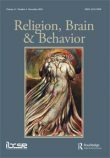 David M. Carballo (Anthropology) Big Gods and Big Science: Further Reflections on Theory, Data, and Analysis (Religion, Brain & Behavior, June 2022) Carballo and co-authors test the Big Gods Hypothesis with respect to the evolution of socio-political complexity (SPC) in world history. They find two main drivers of this evolution: intensity of warfare and agricultural productivity. David M. Carballo (Anthropology) Big Gods and Big Science: Further Reflections on Theory, Data, and Analysis (Religion, Brain & Behavior, June 2022) Carballo and co-authors test the Big Gods Hypothesis with respect to the evolution of socio-political complexity (SPC) in world history. They find two main drivers of this evolution: intensity of warfare and agricultural productivity. |
Alice Cronin-Golomb (Psychological and Brain Sciences) Perceived Stigma and Quality of Life in Parkinson’s Disease with Additional Health Conditions (General Psychiatry, June 2022) Cronin-Golomb and coauthors study individuals with Parkinson’s Disease and one additional health condition. They find that individuals with other health conditions (i.e. thyroid disease, depression, anxiety, etc) were at heightened risk of perceived stigma and poorer quality of life (Psychological and Brain Sciences) Perceived Stigma and Quality of Life in Parkinson’s Disease with Additional Health Conditions (General Psychiatry, June 2022) Cronin-Golomb and coauthors study individuals with Parkinson’s Disease and one additional health condition. They find that individuals with other health conditions (i.e. thyroid disease, depression, anxiety, etc) were at heightened risk of perceived stigma and poorer quality of life |
Center for Antiracist Research (CAR)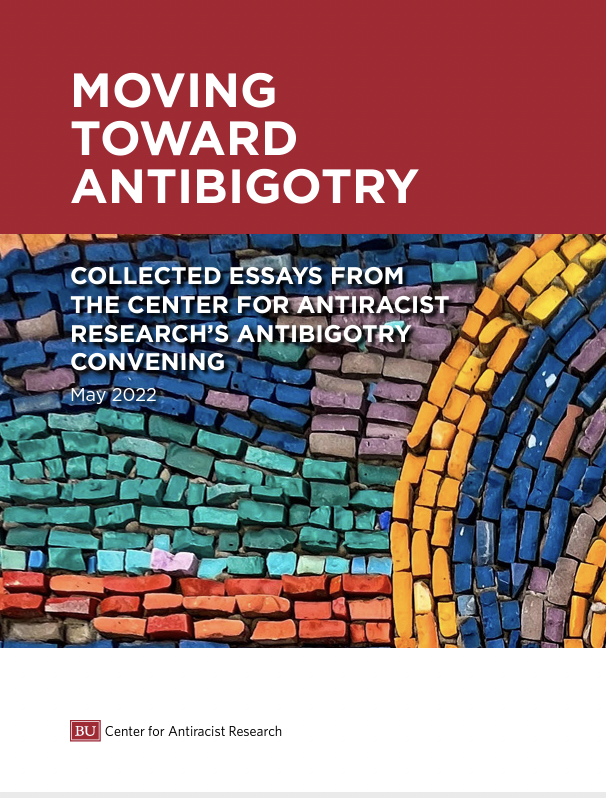 Moving Towards Antibigotry: Collected Essays from the Center for Antiracists Research’s Antibigotry Convening (Center for Antiracist Research, June 2022) Ibram X. Kendi and other scholars discuss ableism, ageism, anti-Asian American racism, anti-blackness/colorism, anti-fat bigotry, anti-pacific islander bigotry, antisemitism, classism, heterosexism and transphobia, islamophobia, linguicism, religious tolerance, and sexism. Moving Towards Antibigotry: Collected Essays from the Center for Antiracists Research’s Antibigotry Convening (Center for Antiracist Research, June 2022) Ibram X. Kendi and other scholars discuss ableism, ageism, anti-Asian American racism, anti-blackness/colorism, anti-fat bigotry, anti-pacific islander bigotry, antisemitism, classism, heterosexism and transphobia, islamophobia, linguicism, religious tolerance, and sexism. |
 David Mayers (Political Science) Freelance Revolutionist: Agnes Smedley in Wartime China (1937-1941) (Diplomacy & Statecraft, June 2022) Mayers discusses the life and career of Agnes Smedley in the context of current Sino-American relations. David Mayers (Political Science) Freelance Revolutionist: Agnes Smedley in Wartime China (1937-1941) (Diplomacy & Statecraft, June 2022) Mayers discusses the life and career of Agnes Smedley in the context of current Sino-American relations. |
 Ian Sue Wing (Earth & Environment) When and How to Use Economy-Wide Models for Environmental Policy Analysis (Annual Review of Resource Economics, June 2022) Sue Wing and co-authors provide a framework for when to use computational general models (CGE) for environmental policy analysis, comparing the approach to partial equilibrium or engineering models. Ian Sue Wing (Earth & Environment) When and How to Use Economy-Wide Models for Environmental Policy Analysis (Annual Review of Resource Economics, June 2022) Sue Wing and co-authors provide a framework for when to use computational general models (CGE) for environmental policy analysis, comparing the approach to partial equilibrium or engineering models. |
Deborah Carr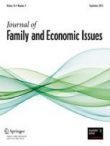 (Sociology) Older Adults’ Relationship Trajectories and Estate Planning (Journal of Family and Economic Issues, June 2022) Carr and co-author Shinae Choi evaluate whether rates of estate planning (i.e., having a will or trust) differ on the basis of one’s romantic relationship trajectory. They find that long-term married and widowed persons have the highest rates of estate planning, and persons who require estate planning most — divorced, cohabiting, and lifelong single persons — have low rates of estate planning. The authors discuss the implications for the financial security of older adults and their families. (Sociology) Older Adults’ Relationship Trajectories and Estate Planning (Journal of Family and Economic Issues, June 2022) Carr and co-author Shinae Choi evaluate whether rates of estate planning (i.e., having a will or trust) differ on the basis of one’s romantic relationship trajectory. They find that long-term married and widowed persons have the highest rates of estate planning, and persons who require estate planning most — divorced, cohabiting, and lifelong single persons — have low rates of estate planning. The authors discuss the implications for the financial security of older adults and their families. |
John Marston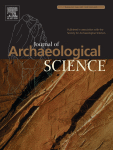 (Archeology) First Archeological Identification of Nixtamalized Maize, From Two Pit Latrines at the Ancient Maya Site of San Bartolo, Guatemala (Journal of Archeological Science, July 2022) Marston and co-authors discovered archaeological evidence of nixtamalization of maize, the method used to create masa dough for tortillas and tamales, from a 9th-century context at the Maya site of San Bartolo, Guatemala. This is the first direct evidence for nixtamalization ever documented archaeologically. (Archeology) First Archeological Identification of Nixtamalized Maize, From Two Pit Latrines at the Ancient Maya Site of San Bartolo, Guatemala (Journal of Archeological Science, July 2022) Marston and co-authors discovered archaeological evidence of nixtamalization of maize, the method used to create masa dough for tortillas and tamales, from a 9th-century context at the Maya site of San Bartolo, Guatemala. This is the first direct evidence for nixtamalization ever documented archaeologically. |
 Jessica T. Simes (Sociology) Prenatal Healthcare After Sentencing Reform: Heterogeneous Effects for Prenatal Healthcare Access and Equity (BMC Public Health, May 2022) Simes and co-author use Pennsylvania’s criminal sentencing reform as a way to evaluate the role of imprisonment in whether a birthing people will attain early and adequate prenatal care. They find that communities where prison admissions numbers decreased, there was an increase in early and adequate prenatal care. They also found that this trend was most noticeable among those with lower educational attainment and Black birthing people. Jessica T. Simes (Sociology) Prenatal Healthcare After Sentencing Reform: Heterogeneous Effects for Prenatal Healthcare Access and Equity (BMC Public Health, May 2022) Simes and co-author use Pennsylvania’s criminal sentencing reform as a way to evaluate the role of imprisonment in whether a birthing people will attain early and adequate prenatal care. They find that communities where prison admissions numbers decreased, there was an increase in early and adequate prenatal care. They also found that this trend was most noticeable among those with lower educational attainment and Black birthing people. |
 Charles Chang (Linguistics) Sociophonetic Variation Amount Asian Americans: The Role of Ethnicity and Style (The Journal of the Acoustical Society of America, May 2022) Danielle Dionne (Linguistics) and Chang study sociophonetic variation of 23 Asia Americans, representing four ethnic groups (Chinese, Filipino, Korean, and Vietnamese), finding similarities and difference in speech production. Charles Chang (Linguistics) Sociophonetic Variation Amount Asian Americans: The Role of Ethnicity and Style (The Journal of the Acoustical Society of America, May 2022) Danielle Dionne (Linguistics) and Chang study sociophonetic variation of 23 Asia Americans, representing four ethnic groups (Chinese, Filipino, Korean, and Vietnamese), finding similarities and difference in speech production. |
Heather Mooney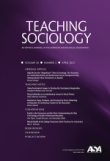 (Sociology) So You’ve Provincialized the Canon. Now What? (Teaching Sociology, May 2022) Mooney and co-author write about how to teach the canon of social theories today. They discuss instructors’ attempts to “provincialize” classic texts in their courses and incorporate critics and diversity the authors they teach. Mooney and co-author raise new concerns surrounding the teaching of canonical works and provide a framework. (Sociology) So You’ve Provincialized the Canon. Now What? (Teaching Sociology, May 2022) Mooney and co-author write about how to teach the canon of social theories today. They discuss instructors’ attempts to “provincialize” classic texts in their courses and incorporate critics and diversity the authors they teach. Mooney and co-author raise new concerns surrounding the teaching of canonical works and provide a framework. |
 Heba Gowayed (Sociology) Refuge (Princeton University Press, April 2022) In this book, Gowayed spends three years following the lives of Syrian refugees who fled to Canada, the United States, and Germany. While centering her discussion on the human experience of displacement, Gowayed shows how each country handles its refugee population and how that impacts the families’ integration into the new society. Heba Gowayed (Sociology) Refuge (Princeton University Press, April 2022) In this book, Gowayed spends three years following the lives of Syrian refugees who fled to Canada, the United States, and Germany. While centering her discussion on the human experience of displacement, Gowayed shows how each country handles its refugee population and how that impacts the families’ integration into the new society. |
 Deborah Carr (Sociology) The Effect of Physical Limitations on Depressive Symptoms over the Life Course: Is Optimism a Protective Buffer? (The Journal of Gerontology: Series B, April 2022) Carr and co-authors find that optimism protects against depressive symptoms among midlife adults with disability, yet the same protective effects do not extend to older adults. Deborah Carr (Sociology) The Effect of Physical Limitations on Depressive Symptoms over the Life Course: Is Optimism a Protective Buffer? (The Journal of Gerontology: Series B, April 2022) Carr and co-authors find that optimism protects against depressive symptoms among midlife adults with disability, yet the same protective effects do not extend to older adults. |
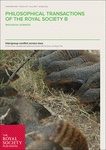 Luke Glowacki (Anthropology) Key Individuals Catalyse Intergroup Violence (Philosophical Transactions of the Royal Society B, April 2022) Glowacki and co-author argue that key individuals initiating violence help coalitionary aggression emerge. They discuss some traits and processes in which key individuals acts as a catalyst, and assist in the development of coalitionary violence. Luke Glowacki (Anthropology) Key Individuals Catalyse Intergroup Violence (Philosophical Transactions of the Royal Society B, April 2022) Glowacki and co-author argue that key individuals initiating violence help coalitionary aggression emerge. They discuss some traits and processes in which key individuals acts as a catalyst, and assist in the development of coalitionary violence. |
 Luke Glowacki (Anthropology) Are Strangers Just Enemies You Have Not Yet Met? Group Homogeneity, Not Intergroup Relations, Shapes Ingroup Bias in Three Natural Groups (Philosophical Transactions of the Royal Society B, April 2022) Glowacki and co-authors study the relationship between homogeneity and ingroup bias, finding that ingroup bias appears as positive concern for members of their ingroup which is further amplified when an ingroup is homogenous. Luke Glowacki (Anthropology) Are Strangers Just Enemies You Have Not Yet Met? Group Homogeneity, Not Intergroup Relations, Shapes Ingroup Bias in Three Natural Groups (Philosophical Transactions of the Royal Society B, April 2022) Glowacki and co-authors study the relationship between homogeneity and ingroup bias, finding that ingroup bias appears as positive concern for members of their ingroup which is further amplified when an ingroup is homogenous. |
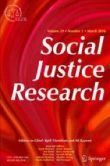 Jonathan Mijs (Sociology). Deliberating Inequality: A Blueprint for Studying the Social Formation of Beliefs about Economic Inequality (Social Justice Research, April 2022) Mijs and coauthors work to understand why people underestimate the extent of economic inequality and as a result are less likely to support increased taxes and wealth redistribution to address inequality. The authors work to understand how social interactions help us develop our understanding of wealth and income inequality. Jonathan Mijs (Sociology). Deliberating Inequality: A Blueprint for Studying the Social Formation of Beliefs about Economic Inequality (Social Justice Research, April 2022) Mijs and coauthors work to understand why people underestimate the extent of economic inequality and as a result are less likely to support increased taxes and wealth redistribution to address inequality. The authors work to understand how social interactions help us develop our understanding of wealth and income inequality. |
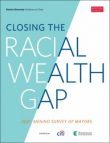 Katherine Levine Einstein (Political Science), David M. Glick (Political Science), and Maxwell Palmer (Political Science). (OpenBU, March 2022) 2021 Menino Survey of Mayors: Closing the Racial Wealth Gap. The 2021 Menino Survey of Mayors is a nationally representative survey of American mayors and is based on interviews with 126 sitting mayors from 39 states. In this edition, the Survey discusses mayors’ opinions on COVD-19 recovery, equity and small business, closing the racial wealth gap, and housing and homelessness. Katherine Levine Einstein (Political Science), David M. Glick (Political Science), and Maxwell Palmer (Political Science). (OpenBU, March 2022) 2021 Menino Survey of Mayors: Closing the Racial Wealth Gap. The 2021 Menino Survey of Mayors is a nationally representative survey of American mayors and is based on interviews with 126 sitting mayors from 39 states. In this edition, the Survey discusses mayors’ opinions on COVD-19 recovery, equity and small business, closing the racial wealth gap, and housing and homelessness. |
Jonathan Mijs (Sociology). Adolescents’ Future in the Balance of Family, School, and the Neighborhood: A Multidimensional Application of Two Theoretical Perspectives. (Social Science Quarterly, March 2022) Mijs and co-author evaluate whether cultural resources (family, school, and neighborhood) foster or depress educational aspirations, expectations, and performance. (Sociology). Adolescents’ Future in the Balance of Family, School, and the Neighborhood: A Multidimensional Application of Two Theoretical Perspectives. (Social Science Quarterly, March 2022) Mijs and co-author evaluate whether cultural resources (family, school, and neighborhood) foster or depress educational aspirations, expectations, and performance. |
Joseph Harris (Sociology) and Jonathan Shaffer (Sociology). Comparing Disciplinary Engagement in Global Research Across the Social Sciences (Social Science Quarterly, March 2022) Harris and Shaffer review contributions to global health made by individuals in the major social science disciplines, which they define as anthropology, economics, political science, and sociology. (Sociology) and Jonathan Shaffer (Sociology). Comparing Disciplinary Engagement in Global Research Across the Social Sciences (Social Science Quarterly, March 2022) Harris and Shaffer review contributions to global health made by individuals in the major social science disciplines, which they define as anthropology, economics, political science, and sociology. |
Katherine Levine Einstein (Political Science, David M. Glick (Political Science), and Maxwell Palmer (Political Science). Developing a Pro-Housing Movement? Public Trust of Developers, Fractured Coalitions, and the Challenges of Measuring Political Power (Interest Groups & Advocacy, March 2022). Levine Einstein, Glick, and Palmer evaluate the increasing power that homeowners and homeowner interest groups have to influence federal, state, and local policy. The authors argue that developers and their perceived profit-seeking behavior may have worked to limit the development of new housing and may lead to the rise of housing reform coalitions. (Political Science, David M. Glick (Political Science), and Maxwell Palmer (Political Science). Developing a Pro-Housing Movement? Public Trust of Developers, Fractured Coalitions, and the Challenges of Measuring Political Power (Interest Groups & Advocacy, March 2022). Levine Einstein, Glick, and Palmer evaluate the increasing power that homeowners and homeowner interest groups have to influence federal, state, and local policy. The authors argue that developers and their perceived profit-seeking behavior may have worked to limit the development of new housing and may lead to the rise of housing reform coalitions. |
 Ian Sue Wing (Earth & Environment) Heterogeneous climate change impacts on electricity demand in world cities circa mid-century (Scientific Reports, March 2022) Sue Wing and co-author evaluate energy consumption patterns during hot and cold hours in 36 cities. They find that the large temperature increases in tropical cities are offset by consumers’ willingness to consume regardless of changing prices or income. This contributes to lower air conditioning penetration. Ian Sue Wing (Earth & Environment) Heterogeneous climate change impacts on electricity demand in world cities circa mid-century (Scientific Reports, March 2022) Sue Wing and co-author evaluate energy consumption patterns during hot and cold hours in 36 cities. They find that the large temperature increases in tropical cities are offset by consumers’ willingness to consume regardless of changing prices or income. This contributes to lower air conditioning penetration. |
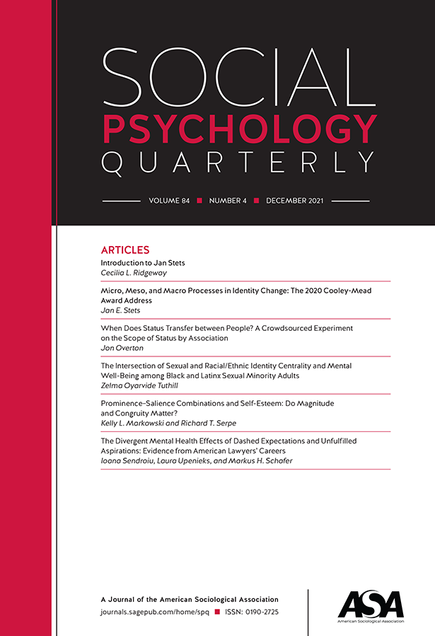 Jonathan Mijs (Sociology). “Belief in Meritocracy Reexamined: Scrutinizing the Role of Subjective Social Mobility” (SSocial Psychology Quarterly, February 18, 2022). Mijs and co-authors study how meritocratic beliefs about success relate to individuals’ social mobility experiences. They find that subjective upward mobility is associated with stronger meritocratic beliefs, and downward mobility is associated with stronger structuralist beliefs—but has no bearing on people’s meritocracy beliefs. Jonathan Mijs (Sociology). “Belief in Meritocracy Reexamined: Scrutinizing the Role of Subjective Social Mobility” (SSocial Psychology Quarterly, February 18, 2022). Mijs and co-authors study how meritocratic beliefs about success relate to individuals’ social mobility experiences. They find that subjective upward mobility is associated with stronger meritocratic beliefs, and downward mobility is associated with stronger structuralist beliefs—but has no bearing on people’s meritocracy beliefs. |
Stephen Kalberg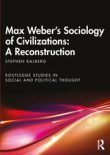 (Sociology). Max Weber’s Sociology of Civilizations: A Reconstruction (Routledge). Kalberg examines civilizations through the broad lens articulated by the works of Max Weber. This volume reconstructs Weber’s sociology in a manner that provides clear guidelines to researchers seeking to investigate civilizations systematically. (Sociology). Max Weber’s Sociology of Civilizations: A Reconstruction (Routledge). Kalberg examines civilizations through the broad lens articulated by the works of Max Weber. This volume reconstructs Weber’s sociology in a manner that provides clear guidelines to researchers seeking to investigate civilizations systematically. |
David M. Carballo (Archaeology, Anthropology, and Latin American Studies). “Governance Strategies in Precolonial Central Mexico.” (Frontiers in Political Science, February 2022). Carballo shows how governance varied synchronically and diachronically in central Mexico across these axes, and especially in relation to resource dilemmas, fiscal financing, the relative strength of corporate groups versus patron-client networks, and how rulership was legitimated. (Archaeology, Anthropology, and Latin American Studies). “Governance Strategies in Precolonial Central Mexico.” (Frontiers in Political Science, February 2022). Carballo shows how governance varied synchronically and diachronically in central Mexico across these axes, and especially in relation to resource dilemmas, fiscal financing, the relative strength of corporate groups versus patron-client networks, and how rulership was legitimated. |
David M. Carballo (Archaeology, Anthropology, and Latin American Studies). “Communication, Computation, and Governance: A Multiscalar Vantage on the Prehispanic Mesoamerican World.” (Journal of Social Computing, February 2022).Carballo and co-author Gary M. Fennman illustrate how institutional differences in governance had a marked effect on the specific modes and technologies through which prehispanic Mesoamerican peoples communicated across time and space. (Archaeology, Anthropology, and Latin American Studies). “Communication, Computation, and Governance: A Multiscalar Vantage on the Prehispanic Mesoamerican World.” (Journal of Social Computing, February 2022).Carballo and co-author Gary M. Fennman illustrate how institutional differences in governance had a marked effect on the specific modes and technologies through which prehispanic Mesoamerican peoples communicated across time and space. |
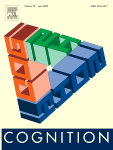 Peter Blake (Psychological & Brain Sciences). “From “Haves” to “Have Nots”: Developmental Declines in Subjective Social Status Reflect Children’s Growing Consideration of What They Do Not Have” (Cognition, February 2022). Blake and colleagues find that children may increasingly consider what they lack to determine their status. Peter Blake (Psychological & Brain Sciences). “From “Haves” to “Have Nots”: Developmental Declines in Subjective Social Status Reflect Children’s Growing Consideration of What They Do Not Have” (Cognition, February 2022). Blake and colleagues find that children may increasingly consider what they lack to determine their status. |
Parker Shipton (Anthropology). Land and the Mortgage: History, Culture Belonging (Berghahn Books, February 2022). In this edited volume anthropologists, historians, and economists explore origins, variations, and meanings of the land mortgage, and the risks to homes and livelihoods. (Anthropology). Land and the Mortgage: History, Culture Belonging (Berghahn Books, February 2022). In this edited volume anthropologists, historians, and economists explore origins, variations, and meanings of the land mortgage, and the risks to homes and livelihoods. |
Joseph Harris (Sociology) “American Medical Sociology and Health Problems in the Global South.” (Sociological Perspectives, January 2022). Harris and co-author Rebecca Farber (BU Sociology PhD, 2019 and assistant professor of sociology at William & Mary) examine the reasons why U.S. medical sociology journals and conferences pay scant attention to global health concerns, despite their intensifying importance. (Sociology) “American Medical Sociology and Health Problems in the Global South.” (Sociological Perspectives, January 2022). Harris and co-author Rebecca Farber (BU Sociology PhD, 2019 and assistant professor of sociology at William & Mary) examine the reasons why U.S. medical sociology journals and conferences pay scant attention to global health concerns, despite their intensifying importance. |
Heba Gowayed (Sociology) and Ashley Mears (Sociology). “Pause, Pivot, and Shift: Situational Human Capital and Responses to Sudden Job Loss.” (American Behavioral Scientist, January 14, 2022). The authors, with co-author Nicholas Occhiuto, examine how workers respond to rapid changes in the labor market in the wake of the COVID-19 pandemic. They find government unemployment benefits to be insufficient as they focus on workers’ pauses, yet neglect to support workers as they pivot and shift during periods of labor market instability and disruption. (Sociology) and Ashley Mears (Sociology). “Pause, Pivot, and Shift: Situational Human Capital and Responses to Sudden Job Loss.” (American Behavioral Scientist, January 14, 2022). The authors, with co-author Nicholas Occhiuto, examine how workers respond to rapid changes in the labor market in the wake of the COVID-19 pandemic. They find government unemployment benefits to be insufficient as they focus on workers’ pauses, yet neglect to support workers as they pivot and shift during periods of labor market instability and disruption. |
Jessica Simes (Sociology). “The Consequences of Medicaid Expansion under the Affordable Care Act for Police Arrests.” (PLOS One, January 12, 2022). Simes and Jacquelyn Jahn show that expanded Medicaid insurance reduced police arrests, particularly drug-related arrests. They conclude that broad health policy reforms can meaningfully reduce contact with the criminal justice system under historic conditions of mass criminalization. (Sociology). “The Consequences of Medicaid Expansion under the Affordable Care Act for Police Arrests.” (PLOS One, January 12, 2022). Simes and Jacquelyn Jahn show that expanded Medicaid insurance reduced police arrests, particularly drug-related arrests. They conclude that broad health policy reforms can meaningfully reduce contact with the criminal justice system under historic conditions of mass criminalization. |
Deborah Carr (Sociology). “Racial and Ethnic Disparities in Advance Care Planning: Assessing the Role of Subjective Life Expectancy.” (Journal of Gerontology: Social Sciences, January 9, 2022). Carr and Yifan Lou show that persons who are unsure of their future survival are less likely to do advance care planning, although these perceptions do not explain away persistent race disparities in ACP. Doctor-patient conversations about the likely course of one’s illness may inform patients’ knowledge of their SLE, which may motivate timely ACP. (Sociology). “Racial and Ethnic Disparities in Advance Care Planning: Assessing the Role of Subjective Life Expectancy.” (Journal of Gerontology: Social Sciences, January 9, 2022). Carr and Yifan Lou show that persons who are unsure of their future survival are less likely to do advance care planning, although these perceptions do not explain away persistent race disparities in ACP. Doctor-patient conversations about the likely course of one’s illness may inform patients’ knowledge of their SLE, which may motivate timely ACP. |
 Saida Grundy (African American Studies, Sociology) Respectable ( August 2022) Grundy gathers the experiences of former students and others connected to Morehouse College to illustrate the narrow, conservative vision of masculinity molded at a competitive Black institution.
Saida Grundy (African American Studies, Sociology) Respectable ( August 2022) Grundy gathers the experiences of former students and others connected to Morehouse College to illustrate the narrow, conservative vision of masculinity molded at a competitive Black institution. Jonathan J.B. Mijs (Sociology) Merit and Ressentiment: How to Tackle the Tyranny of Merit (Theory and Research in Education, July 2022) Mijs discusses Michael Sandel’s The Tyranny of Meritocracy, pushing back on the concept that people are disillusioned with meritocracy but rather than people are disillusioned due to the “broken promise of liberalism and democracy.” Mijs also discusses some of the practical limitations of Sandel’s suggestions regarding elite university admissions.
Jonathan J.B. Mijs (Sociology) Merit and Ressentiment: How to Tackle the Tyranny of Merit (Theory and Research in Education, July 2022) Mijs discusses Michael Sandel’s The Tyranny of Meritocracy, pushing back on the concept that people are disillusioned with meritocracy but rather than people are disillusioned due to the “broken promise of liberalism and democracy.” Mijs also discusses some of the practical limitations of Sandel’s suggestions regarding elite university admissions. Jessica T. Simes (Sociology) “We’re Here to Help”: Criminal Justice Collaboration Among Social Science Service Providers Across the Urban-Rural Continuum (Social Science Review, June 2022) Simes and co-author discuss the collaboration and reliance of social service providers on law enforcement, especially in areas with weak social and economic infrastructures. The authors evaluate the implication of this relationship on mass incarceration and prison reintegration efforts.
Jessica T. Simes (Sociology) “We’re Here to Help”: Criminal Justice Collaboration Among Social Science Service Providers Across the Urban-Rural Continuum (Social Science Review, June 2022) Simes and co-author discuss the collaboration and reliance of social service providers on law enforcement, especially in areas with weak social and economic infrastructures. The authors evaluate the implication of this relationship on mass incarceration and prison reintegration efforts. David M. Carballo (Anthropology) Big Gods and Big Science: Further Reflections on Theory, Data, and Analysis (Religion, Brain & Behavior, June 2022) Carballo and co-authors test the Big Gods Hypothesis with respect to the evolution of socio-political complexity (SPC) in world history. They find two main drivers of this evolution: intensity of warfare and agricultural productivity.
David M. Carballo (Anthropology) Big Gods and Big Science: Further Reflections on Theory, Data, and Analysis (Religion, Brain & Behavior, June 2022) Carballo and co-authors test the Big Gods Hypothesis with respect to the evolution of socio-political complexity (SPC) in world history. They find two main drivers of this evolution: intensity of warfare and agricultural productivity. (Psychological and Brain Sciences) Perceived Stigma and Quality of Life in Parkinson’s Disease with Additional Health Conditions (General Psychiatry, June 2022) Cronin-Golomb and coauthors study individuals with Parkinson’s Disease and one additional health condition. They find that individuals with other health conditions (i.e. thyroid disease, depression, anxiety, etc) were at heightened risk of perceived stigma and poorer quality of life
(Psychological and Brain Sciences) Perceived Stigma and Quality of Life in Parkinson’s Disease with Additional Health Conditions (General Psychiatry, June 2022) Cronin-Golomb and coauthors study individuals with Parkinson’s Disease and one additional health condition. They find that individuals with other health conditions (i.e. thyroid disease, depression, anxiety, etc) were at heightened risk of perceived stigma and poorer quality of life Moving Towards Antibigotry: Collected Essays from the Center for Antiracists Research’s Antibigotry Convening (Center for Antiracist Research, June 2022) Ibram X. Kendi and other scholars discuss ableism, ageism, anti-Asian American racism, anti-blackness/colorism, anti-fat bigotry, anti-pacific islander bigotry, antisemitism, classism, heterosexism and transphobia, islamophobia, linguicism, religious tolerance, and sexism.
Moving Towards Antibigotry: Collected Essays from the Center for Antiracists Research’s Antibigotry Convening (Center for Antiracist Research, June 2022) Ibram X. Kendi and other scholars discuss ableism, ageism, anti-Asian American racism, anti-blackness/colorism, anti-fat bigotry, anti-pacific islander bigotry, antisemitism, classism, heterosexism and transphobia, islamophobia, linguicism, religious tolerance, and sexism. David Mayers (Political Science) Freelance Revolutionist: Agnes Smedley in Wartime China (1937-1941) (Diplomacy & Statecraft, June 2022) Mayers discusses the life and career of Agnes Smedley in the context of current Sino-American relations.
David Mayers (Political Science) Freelance Revolutionist: Agnes Smedley in Wartime China (1937-1941) (Diplomacy & Statecraft, June 2022) Mayers discusses the life and career of Agnes Smedley in the context of current Sino-American relations. Ian Sue Wing (Earth & Environment) When and How to Use Economy-Wide Models for Environmental Policy Analysis (Annual Review of Resource Economics, June 2022) Sue Wing and co-authors provide a framework for when to use computational general models (CGE) for environmental policy analysis, comparing the approach to partial equilibrium or engineering models.
Ian Sue Wing (Earth & Environment) When and How to Use Economy-Wide Models for Environmental Policy Analysis (Annual Review of Resource Economics, June 2022) Sue Wing and co-authors provide a framework for when to use computational general models (CGE) for environmental policy analysis, comparing the approach to partial equilibrium or engineering models. (Sociology) Older Adults’ Relationship Trajectories and Estate Planning (Journal of Family and Economic Issues, June 2022) Carr and co-author Shinae Choi evaluate whether rates of estate planning (i.e., having a will or trust) differ on the basis of one’s romantic relationship trajectory. They find that long-term married and widowed persons have the highest rates of estate planning, and persons who require estate planning most — divorced, cohabiting, and lifelong single persons — have low rates of estate planning. The authors discuss the implications for the financial security of older adults and their families.
(Sociology) Older Adults’ Relationship Trajectories and Estate Planning (Journal of Family and Economic Issues, June 2022) Carr and co-author Shinae Choi evaluate whether rates of estate planning (i.e., having a will or trust) differ on the basis of one’s romantic relationship trajectory. They find that long-term married and widowed persons have the highest rates of estate planning, and persons who require estate planning most — divorced, cohabiting, and lifelong single persons — have low rates of estate planning. The authors discuss the implications for the financial security of older adults and their families.  (Archeology) First Archeological Identification of Nixtamalized Maize, From Two Pit Latrines at the Ancient Maya Site of San Bartolo, Guatemala (Journal of Archeological Science, July 2022) Marston and co-authors discovered archaeological evidence of nixtamalization of maize, the method used to create masa dough for tortillas and tamales, from a 9th-century context at the Maya site of San Bartolo, Guatemala. This is the first direct evidence for nixtamalization ever documented archaeologically.
(Archeology) First Archeological Identification of Nixtamalized Maize, From Two Pit Latrines at the Ancient Maya Site of San Bartolo, Guatemala (Journal of Archeological Science, July 2022) Marston and co-authors discovered archaeological evidence of nixtamalization of maize, the method used to create masa dough for tortillas and tamales, from a 9th-century context at the Maya site of San Bartolo, Guatemala. This is the first direct evidence for nixtamalization ever documented archaeologically. Jessica T. Simes (Sociology) Prenatal Healthcare After Sentencing Reform: Heterogeneous Effects for Prenatal Healthcare Access and Equity (BMC Public Health, May 2022) Simes and co-author use Pennsylvania’s criminal sentencing reform as a way to evaluate the role of imprisonment in whether a birthing people will attain early and adequate prenatal care. They find that communities where prison admissions numbers decreased, there was an increase in early and adequate prenatal care. They also found that this trend was most noticeable among those with lower educational attainment and Black birthing people.
Jessica T. Simes (Sociology) Prenatal Healthcare After Sentencing Reform: Heterogeneous Effects for Prenatal Healthcare Access and Equity (BMC Public Health, May 2022) Simes and co-author use Pennsylvania’s criminal sentencing reform as a way to evaluate the role of imprisonment in whether a birthing people will attain early and adequate prenatal care. They find that communities where prison admissions numbers decreased, there was an increase in early and adequate prenatal care. They also found that this trend was most noticeable among those with lower educational attainment and Black birthing people. (Sociology) So You’ve Provincialized the Canon. Now What? (Teaching Sociology, May 2022) Mooney and co-author write about how to teach the canon of social theories today. They discuss instructors’ attempts to “provincialize” classic texts in their courses and incorporate critics and diversity the authors they teach. Mooney and co-author raise new concerns surrounding the teaching of canonical works and provide a framework.
(Sociology) So You’ve Provincialized the Canon. Now What? (Teaching Sociology, May 2022) Mooney and co-author write about how to teach the canon of social theories today. They discuss instructors’ attempts to “provincialize” classic texts in their courses and incorporate critics and diversity the authors they teach. Mooney and co-author raise new concerns surrounding the teaching of canonical works and provide a framework. Heba Gowayed (Sociology) Refuge (Princeton University Press, April 2022) In this book, Gowayed spends three years following the lives of Syrian refugees who fled to Canada, the United States, and Germany. While centering her discussion on the human experience of displacement, Gowayed shows how each country handles its refugee population and how that impacts the families’ integration into the new society.
Heba Gowayed (Sociology) Refuge (Princeton University Press, April 2022) In this book, Gowayed spends three years following the lives of Syrian refugees who fled to Canada, the United States, and Germany. While centering her discussion on the human experience of displacement, Gowayed shows how each country handles its refugee population and how that impacts the families’ integration into the new society. Deborah Carr (Sociology) The Effect of Physical Limitations on Depressive Symptoms over the Life Course: Is Optimism a Protective Buffer? (The Journal of Gerontology: Series B, April 2022) Carr and co-authors find that optimism protects against depressive symptoms among midlife adults with disability, yet the same protective effects do not extend to older adults.
Deborah Carr (Sociology) The Effect of Physical Limitations on Depressive Symptoms over the Life Course: Is Optimism a Protective Buffer? (The Journal of Gerontology: Series B, April 2022) Carr and co-authors find that optimism protects against depressive symptoms among midlife adults with disability, yet the same protective effects do not extend to older adults. Luke Glowacki (Anthropology) Key Individuals Catalyse Intergroup Violence (Philosophical Transactions of the Royal Society B, April 2022) Glowacki and co-author argue that key individuals initiating violence help coalitionary aggression emerge. They discuss some traits and processes in which key individuals acts as a catalyst, and assist in the development of coalitionary violence.
Luke Glowacki (Anthropology) Key Individuals Catalyse Intergroup Violence (Philosophical Transactions of the Royal Society B, April 2022) Glowacki and co-author argue that key individuals initiating violence help coalitionary aggression emerge. They discuss some traits and processes in which key individuals acts as a catalyst, and assist in the development of coalitionary violence. Luke Glowacki (Anthropology) Are Strangers Just Enemies You Have Not Yet Met? Group Homogeneity, Not Intergroup Relations, Shapes Ingroup Bias in Three Natural Groups (Philosophical Transactions of the Royal Society B, April 2022) Glowacki and co-authors study the relationship between homogeneity and ingroup bias, finding that ingroup bias appears as positive concern for members of their ingroup which is further amplified when an ingroup is homogenous.
Luke Glowacki (Anthropology) Are Strangers Just Enemies You Have Not Yet Met? Group Homogeneity, Not Intergroup Relations, Shapes Ingroup Bias in Three Natural Groups (Philosophical Transactions of the Royal Society B, April 2022) Glowacki and co-authors study the relationship between homogeneity and ingroup bias, finding that ingroup bias appears as positive concern for members of their ingroup which is further amplified when an ingroup is homogenous. Jonathan Mijs (Sociology). Deliberating Inequality: A Blueprint for Studying the Social Formation of Beliefs about Economic Inequality (Social Justice Research, April 2022) Mijs and coauthors work to understand why people underestimate the extent of economic inequality and as a result are less likely to support increased taxes and wealth redistribution to address inequality. The authors work to understand how social interactions help us develop our understanding of wealth and income inequality.
Jonathan Mijs (Sociology). Deliberating Inequality: A Blueprint for Studying the Social Formation of Beliefs about Economic Inequality (Social Justice Research, April 2022) Mijs and coauthors work to understand why people underestimate the extent of economic inequality and as a result are less likely to support increased taxes and wealth redistribution to address inequality. The authors work to understand how social interactions help us develop our understanding of wealth and income inequality. Katherine Levine Einstein (Political Science), David M. Glick (Political Science), and Maxwell Palmer (Political Science). (OpenBU, March 2022) 2021 Menino Survey of Mayors: Closing the Racial Wealth Gap. The 2021 Menino Survey of Mayors is a nationally representative survey of American mayors and is based on interviews with 126 sitting mayors from 39 states. In this edition, the Survey discusses mayors’ opinions on COVD-19 recovery, equity and small business, closing the racial wealth gap, and housing and homelessness.
Katherine Levine Einstein (Political Science), David M. Glick (Political Science), and Maxwell Palmer (Political Science). (OpenBU, March 2022) 2021 Menino Survey of Mayors: Closing the Racial Wealth Gap. The 2021 Menino Survey of Mayors is a nationally representative survey of American mayors and is based on interviews with 126 sitting mayors from 39 states. In this edition, the Survey discusses mayors’ opinions on COVD-19 recovery, equity and small business, closing the racial wealth gap, and housing and homelessness.  (Sociology). Adolescents’ Future in the Balance of Family, School, and the Neighborhood: A Multidimensional Application of Two Theoretical Perspectives. (Social Science Quarterly, March 2022) Mijs and co-author evaluate whether cultural resources (family, school, and neighborhood) foster or depress educational aspirations, expectations, and performance.
(Sociology). Adolescents’ Future in the Balance of Family, School, and the Neighborhood: A Multidimensional Application of Two Theoretical Perspectives. (Social Science Quarterly, March 2022) Mijs and co-author evaluate whether cultural resources (family, school, and neighborhood) foster or depress educational aspirations, expectations, and performance. (Sociology) and Jonathan Shaffer (Sociology). Comparing Disciplinary Engagement in Global Research Across the Social Sciences (Social Science Quarterly, March 2022) Harris and Shaffer review contributions to global health made by individuals in the major social science disciplines, which they define as anthropology, economics, political science, and sociology.
(Sociology) and Jonathan Shaffer (Sociology). Comparing Disciplinary Engagement in Global Research Across the Social Sciences (Social Science Quarterly, March 2022) Harris and Shaffer review contributions to global health made by individuals in the major social science disciplines, which they define as anthropology, economics, political science, and sociology. (Political Science, David M. Glick (Political Science), and Maxwell Palmer (Political Science). Developing a Pro-Housing Movement? Public Trust of Developers, Fractured Coalitions, and the Challenges of Measuring Political Power (Interest Groups & Advocacy, March 2022). Levine Einstein, Glick, and Palmer evaluate the increasing power that homeowners and homeowner interest groups have to influence federal, state, and local policy. The authors argue that developers and their perceived profit-seeking behavior may have worked to limit the development of new housing and may lead to the rise of housing reform coalitions.
(Political Science, David M. Glick (Political Science), and Maxwell Palmer (Political Science). Developing a Pro-Housing Movement? Public Trust of Developers, Fractured Coalitions, and the Challenges of Measuring Political Power (Interest Groups & Advocacy, March 2022). Levine Einstein, Glick, and Palmer evaluate the increasing power that homeowners and homeowner interest groups have to influence federal, state, and local policy. The authors argue that developers and their perceived profit-seeking behavior may have worked to limit the development of new housing and may lead to the rise of housing reform coalitions. Ian Sue Wing (Earth & Environment) Heterogeneous climate change impacts on electricity demand in world cities circa mid-century (Scientific Reports, March 2022) Sue Wing and co-author evaluate energy consumption patterns during hot and cold hours in 36 cities. They find that the large temperature increases in tropical cities are offset by consumers’ willingness to consume regardless of changing prices or income. This contributes to lower air conditioning penetration.
Ian Sue Wing (Earth & Environment) Heterogeneous climate change impacts on electricity demand in world cities circa mid-century (Scientific Reports, March 2022) Sue Wing and co-author evaluate energy consumption patterns during hot and cold hours in 36 cities. They find that the large temperature increases in tropical cities are offset by consumers’ willingness to consume regardless of changing prices or income. This contributes to lower air conditioning penetration. Jonathan Mijs (Sociology). “Belief in Meritocracy Reexamined: Scrutinizing the Role of Subjective Social Mobility” (SSocial Psychology Quarterly, February 18, 2022). Mijs and co-authors study how meritocratic beliefs about success relate to individuals’ social mobility experiences. They find that subjective upward mobility is associated with stronger meritocratic beliefs, and downward mobility is associated with stronger structuralist beliefs—but has no bearing on people’s meritocracy beliefs.
Jonathan Mijs (Sociology). “Belief in Meritocracy Reexamined: Scrutinizing the Role of Subjective Social Mobility” (SSocial Psychology Quarterly, February 18, 2022). Mijs and co-authors study how meritocratic beliefs about success relate to individuals’ social mobility experiences. They find that subjective upward mobility is associated with stronger meritocratic beliefs, and downward mobility is associated with stronger structuralist beliefs—but has no bearing on people’s meritocracy beliefs. (Sociology). Max Weber’s Sociology of Civilizations: A Reconstruction (Routledge). Kalberg examines civilizations through the broad lens articulated by the works of Max Weber. This volume reconstructs Weber’s sociology in a manner that provides clear guidelines to researchers seeking to investigate civilizations systematically.
(Sociology). Max Weber’s Sociology of Civilizations: A Reconstruction (Routledge). Kalberg examines civilizations through the broad lens articulated by the works of Max Weber. This volume reconstructs Weber’s sociology in a manner that provides clear guidelines to researchers seeking to investigate civilizations systematically. (Archaeology, Anthropology, and Latin American Studies). “Governance Strategies in Precolonial Central Mexico.” (Frontiers in Political Science, February 2022). Carballo shows how governance varied synchronically and diachronically in central Mexico across these axes, and especially in relation to resource dilemmas, fiscal financing, the relative strength of corporate groups versus patron-client networks, and how rulership was legitimated.
(Archaeology, Anthropology, and Latin American Studies). “Governance Strategies in Precolonial Central Mexico.” (Frontiers in Political Science, February 2022). Carballo shows how governance varied synchronically and diachronically in central Mexico across these axes, and especially in relation to resource dilemmas, fiscal financing, the relative strength of corporate groups versus patron-client networks, and how rulership was legitimated. (Archaeology, Anthropology, and Latin American Studies). “Communication, Computation, and Governance: A Multiscalar Vantage on the Prehispanic Mesoamerican World.” (Journal of Social Computing, February 2022).Carballo and co-author Gary M. Fennman illustrate how institutional differences in governance had a marked effect on the specific modes and technologies through which prehispanic Mesoamerican peoples communicated across time and space.
(Archaeology, Anthropology, and Latin American Studies). “Communication, Computation, and Governance: A Multiscalar Vantage on the Prehispanic Mesoamerican World.” (Journal of Social Computing, February 2022).Carballo and co-author Gary M. Fennman illustrate how institutional differences in governance had a marked effect on the specific modes and technologies through which prehispanic Mesoamerican peoples communicated across time and space. Peter Blake (Psychological & Brain Sciences). “From “Haves” to “Have Nots”: Developmental Declines in Subjective Social Status Reflect Children’s Growing Consideration of What They Do Not Have” (Cognition, February 2022). Blake and colleagues find that children may increasingly consider what they lack to determine their status.
Peter Blake (Psychological & Brain Sciences). “From “Haves” to “Have Nots”: Developmental Declines in Subjective Social Status Reflect Children’s Growing Consideration of What They Do Not Have” (Cognition, February 2022). Blake and colleagues find that children may increasingly consider what they lack to determine their status. (Anthropology). Land and the Mortgage: History, Culture Belonging (Berghahn Books, February 2022). In this edited volume anthropologists, historians, and economists explore origins, variations, and meanings of the land mortgage, and the risks to homes and livelihoods.
(Anthropology). Land and the Mortgage: History, Culture Belonging (Berghahn Books, February 2022). In this edited volume anthropologists, historians, and economists explore origins, variations, and meanings of the land mortgage, and the risks to homes and livelihoods. (Sociology) “American Medical Sociology and Health Problems in the Global South.” (Sociological Perspectives, January 2022). Harris and co-author Rebecca Farber (BU Sociology PhD, 2019 and assistant professor of sociology at William & Mary) examine the reasons why U.S. medical sociology journals and conferences pay scant attention to global health concerns, despite their intensifying importance.
(Sociology) “American Medical Sociology and Health Problems in the Global South.” (Sociological Perspectives, January 2022). Harris and co-author Rebecca Farber (BU Sociology PhD, 2019 and assistant professor of sociology at William & Mary) examine the reasons why U.S. medical sociology journals and conferences pay scant attention to global health concerns, despite their intensifying importance. (Sociology) and Ashley Mears (Sociology). “Pause, Pivot, and Shift: Situational Human Capital and Responses to Sudden Job Loss.” (American Behavioral Scientist, January 14, 2022). The authors, with co-author Nicholas Occhiuto, examine how workers respond to rapid changes in the labor market in the wake of the COVID-19 pandemic. They find government unemployment benefits to be insufficient as they focus on workers’ pauses, yet neglect to support workers as they pivot and shift during periods of labor market instability and disruption.
(Sociology) and Ashley Mears (Sociology). “Pause, Pivot, and Shift: Situational Human Capital and Responses to Sudden Job Loss.” (American Behavioral Scientist, January 14, 2022). The authors, with co-author Nicholas Occhiuto, examine how workers respond to rapid changes in the labor market in the wake of the COVID-19 pandemic. They find government unemployment benefits to be insufficient as they focus on workers’ pauses, yet neglect to support workers as they pivot and shift during periods of labor market instability and disruption. (Sociology). “The Consequences of Medicaid Expansion under the Affordable Care Act for Police Arrests.” (PLOS One, January 12, 2022). Simes and Jacquelyn Jahn show that expanded Medicaid insurance reduced police arrests, particularly drug-related arrests. They conclude that broad health policy reforms can meaningfully reduce contact with the criminal justice system under historic conditions of mass criminalization.
(Sociology). “The Consequences of Medicaid Expansion under the Affordable Care Act for Police Arrests.” (PLOS One, January 12, 2022). Simes and Jacquelyn Jahn show that expanded Medicaid insurance reduced police arrests, particularly drug-related arrests. They conclude that broad health policy reforms can meaningfully reduce contact with the criminal justice system under historic conditions of mass criminalization. (Sociology). “Racial and Ethnic Disparities in Advance Care Planning: Assessing the Role of Subjective Life Expectancy.” (Journal of Gerontology: Social Sciences, January 9, 2022). Carr and Yifan Lou show that persons who are unsure of their future survival are less likely to do advance care planning, although these perceptions do not explain away persistent race disparities in ACP. Doctor-patient conversations about the likely course of one’s illness may inform patients’ knowledge of their SLE, which may motivate timely ACP.
(Sociology). “Racial and Ethnic Disparities in Advance Care Planning: Assessing the Role of Subjective Life Expectancy.” (Journal of Gerontology: Social Sciences, January 9, 2022). Carr and Yifan Lou show that persons who are unsure of their future survival are less likely to do advance care planning, although these perceptions do not explain away persistent race disparities in ACP. Doctor-patient conversations about the likely course of one’s illness may inform patients’ knowledge of their SLE, which may motivate timely ACP.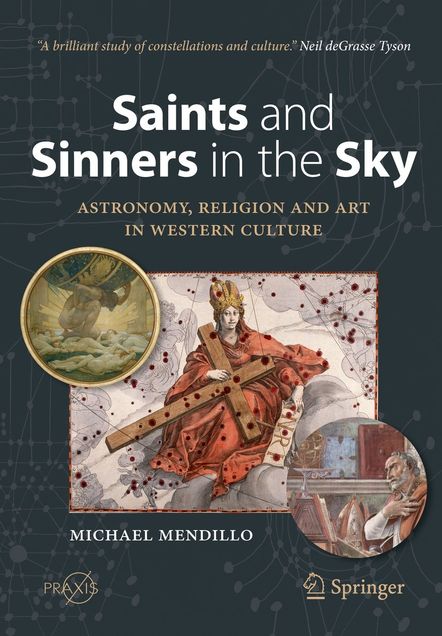 Michael Mendillo
Michael Mendillo Les Kaufman
Les Kaufman Wen Li
Wen Li Randi Rotjan
Randi Rotjan John Porco
John Porco Sandor Vajda
Sandor Vajda